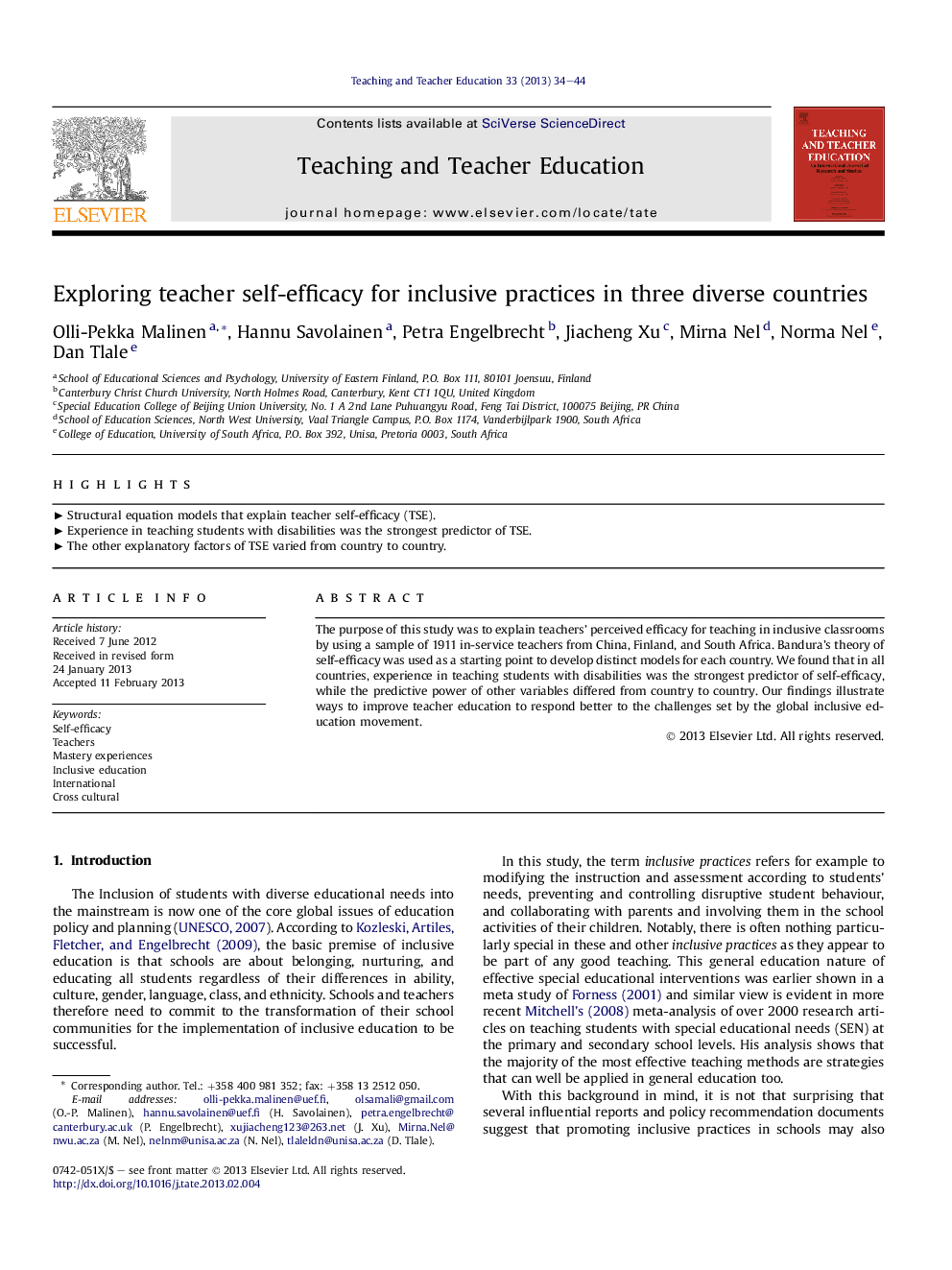| Article ID | Journal | Published Year | Pages | File Type |
|---|---|---|---|---|
| 374042 | Teaching and Teacher Education | 2013 | 11 Pages |
The purpose of this study was to explain teachers' perceived efficacy for teaching in inclusive classrooms by using a sample of 1911 in-service teachers from China, Finland, and South Africa. Bandura's theory of self-efficacy was used as a starting point to develop distinct models for each country. We found that in all countries, experience in teaching students with disabilities was the strongest predictor of self-efficacy, while the predictive power of other variables differed from country to country. Our findings illustrate ways to improve teacher education to respond better to the challenges set by the global inclusive education movement.
► Structural equation models that explain teacher self-efficacy (TSE). ► Experience in teaching students with disabilities was the strongest predictor of TSE. ► The other explanatory factors of TSE varied from country to country.
